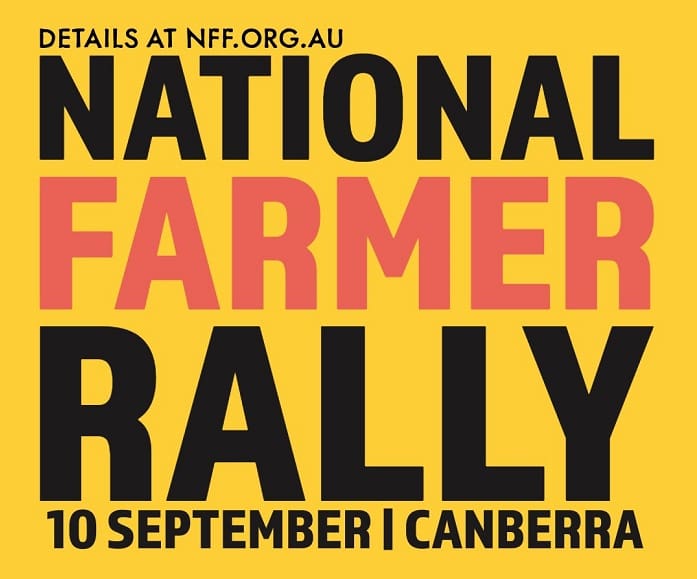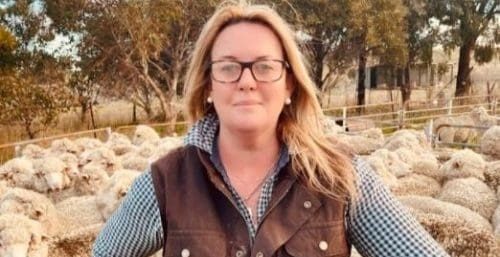
PEAK industry body WoolProducers Australia has urged growers to attend next week’s National Farmer Rally in Canberra, claiming out-of-touch Federal Government policy has decimated the Western Australian wool industry.
WPA said its encouragement to attend the rally followed alarming findings announced in the Australian Wool Production Forecasting Committee report in mid-August.
The second forecast for shorn wool production for 2024-25, predicts a significant decline in Western Australia’s wool production to 44.7 million kilograms greasy, which marks a staggering 18.8 percent decrease from 2023-24.
WPA chief executive officer Jo Hall said the 10 September rally is essential to demonstrate that agriculture needs to be at the forefront of government policy decisions, not as an afterthought while chasing popularist votes.
“With many Australians already struggling to afford food, it makes no sense for the government to marginalise the agricultural sector further,” she said.
“It’s a big gamble being taken in organising this rally, so we are urging all of those that can attend to make the effort,” she said.
Ms Hall expressed concern over the declining sentiment among sheep producers, citing the May 2024 Sheep Producers Intentions Survey, that indicated a 24 percent drop in grower confidence compared to the previous year.
“The May SPIS findings on grower confidence seems to ring true where it reported projected declines in both breeding ewe and wether flocks, which will have significant repercussions for the national wool clip,” she said.

WoolProducers Australia CEO Jo Hall.
WA’s Merino sheep numbers have been reduced, with the interstate transfer of about 830,000 mainly breeding ewes many carrying six or more months of fleece, reduced ewe joinings, and an increased proportion of those remaining Merino ewes mated to crossbred rams, WPA said.
“As we have repeatedly stated during the debate around the live sheep export trade – when the wool industry suffers, so too do the regional economies and services of those areas that rely on the industry,” Ms Hall said.
“We are hearing anecdotally that wool brokers are laying staff off in the West given the lower production.
“What we are seeing in real time is the decimation of the Western Australian wool industry brought on by out of touch government policy.”
WPA said the farmer rally on 10 September aimed to unite farmers and send a strong message to parliamentarians that Australian farmers will no longer tolerate an anti-farming agenda from the government.
The rally originated in response to the government’s decision to ban live sheep exports, but will also address broader agricultural policies impacting producers and regional communities. WoolProducers said along with the National Farmers Federation and the Keep the Sheep campaign, it strongly supports this rally and urged all impacted Australians to attend.
“The ban on live sheep exports is just the beginning of a slippery slope that could lead to more restrictions on agriculture,” Ms Hall warned.
“If we allow unfounded claims from activists to override industry expertise, we risk jeopardising not just sheep farming but the future of agriculture as a whole.”
WPA said the rally will also highlight additional policies currently under consideration, including scrapping the diesel fuel rebate, new taxes for biosecurity, eliminating the 88 days of specified work requirement for backpackers, new superannuation taxes, water buybacks in the Murray Darling Basin, increased red tape from Scope 3 emissions reporting and the community impacts of energy and renewable developments.
For more information and to register your attendance at the rally visit www.nff.org.au or www.keepthesheep.com.au.

Fifty-odd years ago there was a saying that Australia rode on the sheep’s back. Well here we stand and we have a Labor government that’s roots were founded in the sheep shearing industry, but is hell-bent on destroying a legal, legitimate and sustainable industry. Many of us have cleared land, put it into pasture for livestock and cared for our farms and stock to feed and clothe the world. Sheep and wool were the mainstays of our farming operation that helped educate and sustain our families for five generations that I know of.
In closing, I would like to say Mr Albanese, keep your hands off our industry. My apologies for not been able to attend the rally in Canberra.
It is all about inner city votes, nothing to do with animal welfare, which is a travesty.
Given 75 percent of voyages from 2018 to present-day with sheep and Independent Observers on board were seen to have ASEL breaches (see below), and given 80pc of the IO reports included sheep dying of inanition (starvation), and given heat stress was observed on 60pc of voyages and in every month of the year outside of the prohibition dates, I’d say it has a lot to do with animal welfare. Independent Observers are currently only on around 30pc of voyages they should be on, so breaches are probably much higher.
The government is following the science, the current and historical data, evidence and expert opinion. Those who want to see it continue are all coming from a place of emotion, sentimentality and tradition.
Breaches (so far) have included:
● poor quality feed including mouldy feed
● dirty drinking water
● withholding feed
● withholding water
● non-compliant fleece length
● insufficient space
● incompetent, incomplete or absent euthanasia
● incorrect storage of medications
● lambing (late-stage pregnant ewes should not have been loaded)
● sheep dying or needing to be euthanised for shearing cut infections (injured sheep should not have been loaded)
● sheep dying or needing to be euthanised for dog bite wounds (injured sheep should not have been loaded and all dogs working with sheep must be muzzled).